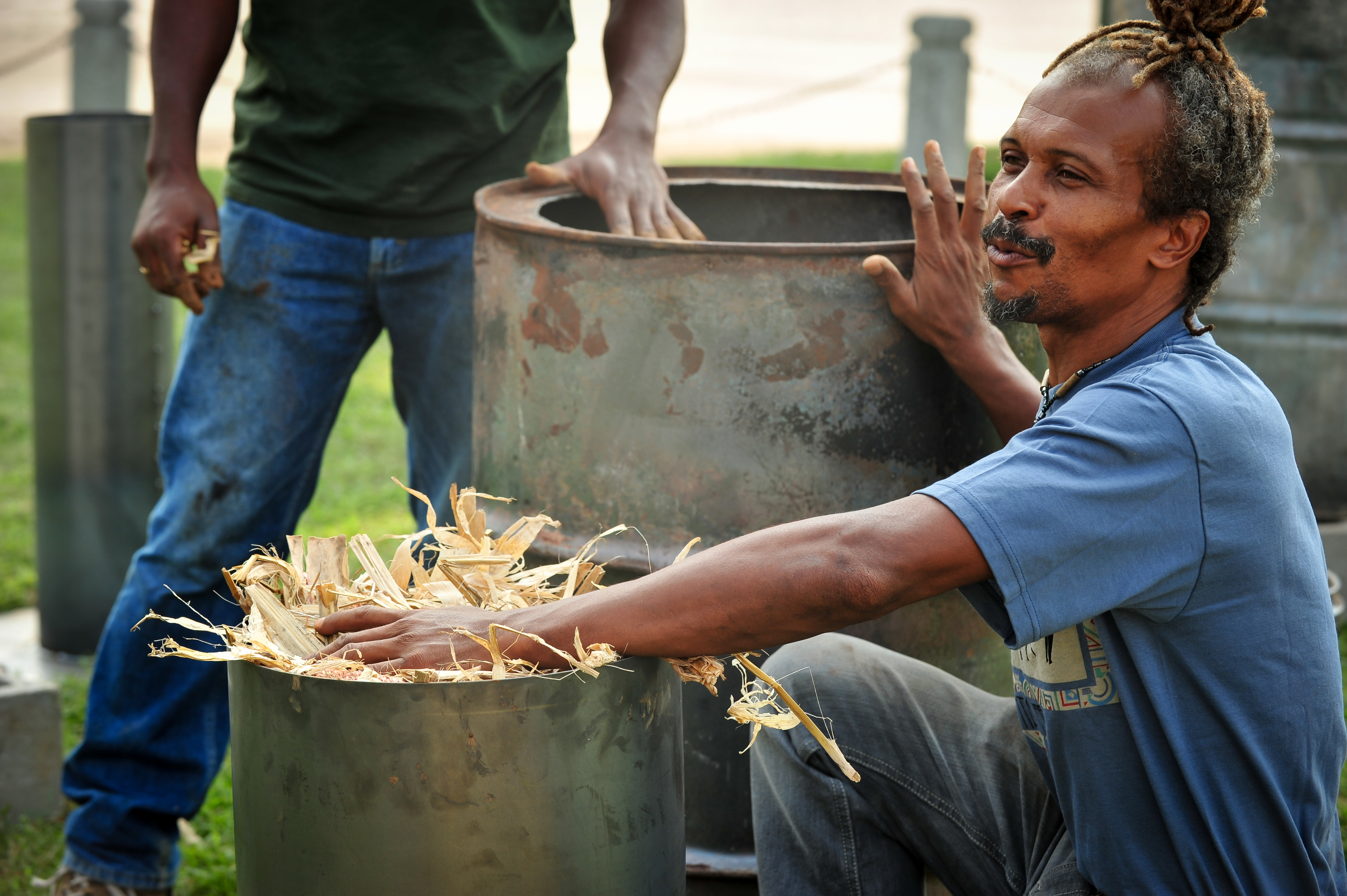Biochar could offer solutions in Haiti
Biochar could offer solutions in Haiti


Even before the 7.0 earthquake in 2010, deforestation in Haiti was a huge problem. Over the past 50 years, forested land in the country has fallen from 60 percent to a mere 1 percent. This situation creates all kinds of problems including soil erosion to the tune of 15,000 acres of topsoil washed away each year.
Without forests, Haitians also face a dilemma when it comes to cooking; they have no fuel. The University of Kentucky College of Agriculture, Food and Environment recently teamed up with Community Development International, a nonprofit organization that is working to find alternative cooking and heating fuels and soil amendments in Haiti.
Guypson Catalis is a 28-year-old agronomy student in Haiti. His focus is making cooking briquettes and using available, bio-friendly materials for cook stoves and heaters. He recently came to the UK campus with fellow Haitian Joe Duplan and CDI founding director Matthias Resch. They worked with engineers and economists in the UK Department of Biosystems and Agricultural Engineering and the Department of Agricultural Economics and spoke to several classes.
“Fuel not made from wood solves two problems; it reduces deforestation and reduces public health problems from indoor air pollution when people cook with open fires,” said Leigh Maynard, chair of the UK Department of Agricultural Economics. “This is the type of project that has a lot of connections to agricultural economics and the work we do. Students always get a big boost from anything from the outside world that ties what we are trying to teach to real-world problems. We are literally saving lives and reducing deforestation at the same time.”
Catalis and Duplan did a demonstration on campus using 55-gallon drums filled with plant byproducts such as corn stover—material that would naturally degrade into greenhouse gases—to create biochar. Biochar is a name for charcoal made by burning biomass in a no- or low-oxygen environment. The process is actually hundreds of years old and results in a solid material that farmers can add to soils, make into briquettes and also produce oil and gas byproducts for fuel.
“For us it is a very good study on systems,” said Sue Nokes, chair of the Department of Biosystems and Agricultural Engineering. “Removing the forests for cooking fuel affects soil nutrition, because it promotes erosion, and that means, when there is flooding, there is too much runoff. You can’t fix one part of the system without fixing other parts.”
UK agricultural economist Lee Meyer teaches a course for undergraduates called International Trade and Global Food Issues.
“Most of my students are from Kentucky,” he said. “I think it’s important for them to get a broader perspective. Haiti is really not very far from the United States, yet it’s one of the poorest countries in the world. In Haiti, the per capita income is less than $2,000 per year; here it’s around $40,000.”
Nokes said Catalis, Duplan and Resch spoke to a senior-level, global perspectives class in her department.
“From an engineering standpoint, we are looking at soils and technology,” she said. “Our students naturally think of solving problems from a U.S. perspective. When you have people come in from places like Haiti, and they don’t have the raw materials we have, nor the processing or manufacturing techniques we have, it really changes the way students are thinking about engineering.”
While Duplan traveled back to Haiti after the UKAg visit, Catalis went on to New York with CDI where he’ll spend another month learning and sharing before returning to his home country to start commercializing biochar. He’s planning to start a business selling briquettes and clean-burning cook stoves and educating others in Haiti on how to become less dependent on forests for daily living.
Biosystems Ag Engineering Community & Leadership Development Agricultural Economics Extension Research


